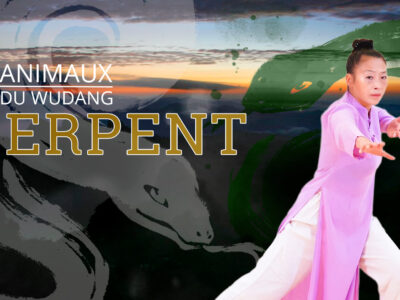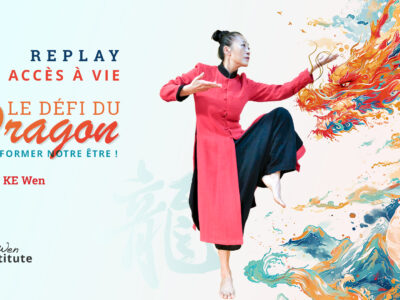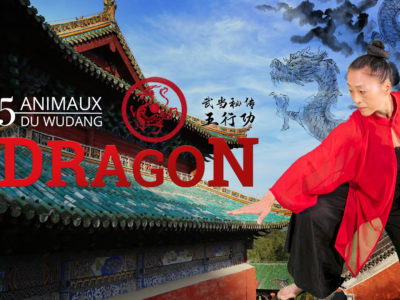by KE Wen, 2009
Qi Gong is one of the treasures of Chinese culture, based on the awareness of breath (Qi) and the harmony between body and mind. This ancient practice includes many methods from the Taoist schools, Buddhist and Chinese Medicine. They all develop three essential aspects: Xing (movement), Qi (breath) and Shen (concentration of mind, consciousness).
The book Enter the Practice of Qi Gong, handy and accessible, allows you to progress at your own pace on the path of finding a balance between body and mind, regardless of your physical condition.
Accompanied by a DVD of commented exercises, it is the fruit of a long Qi Gong teaching experience in the West. Ke Wen presents an innovative method, combining the essence of traditional Qi Gong and a clear pedagogy. We are gradually brought into the understanding of the Chinese culture, in which body and nature are vivified by the breath.
The three parts are teaching:
- The basic movements of Qi Gong to circulate the energy;
- The postures to reinforce bases movements to enhance the energy;
- Theoretic basis for understanding the functioning of the energy

by KE Wen and ZHANG Ming Liang, 2012
The Calmness Path is a method to find inner balance through meditation. This book is a great initiation into the four major Chinese wisdoms: Taoism, Confucianism, Buddhism and Chinese medicine. Each of the four pillars of Chinese culture are approached from a philosophical standpoint and a set of specific meditation practices, gradually initiations into the calmness path, are provided. The benefits: returning to harmony with oneself and others, better health, opening of consciousness, discovering the wisdom of the body.
- An accessible philosophical work
- A progressive practice guide on the meditation path
- A beautiful, poetic book with splendidly illustrations

by KE Wen and Liliane PAPIN, 2015
According to Chinese medicine, good health means to live in physical, emotional and spiritual harmony with ourselves, with our social and natural environment, in order to flourish, prevent illness and stay young as long as possible. In this beautifully illustrated book, one can learn more about the body – and its innate wisdom – through the five element medicine wheel, and develop the art of living and aging well.
Presented in five sections corresponding to the five elements – wood, fire, earth, metal, water – the book invites to discover a wide variety of prevention practices – dietary, herbal medicine, management of emotions … – and illustrates specific Qi Gong postures, in order to live in health and increase longevity.

by KE Wen and Sophie FAURE, 2017
Chinese culture is based on the unity of the three teachings san jiao he yi 三教合一, Confucianism, Taoism and Buddhism. This text, very Taoist in its beginning, is also strongly imbued with Buddhism, which developed particularly during the Tang Dynasty.
Thus, Taoist notions such as dao, wu wei or the practice of guan – contemplation – are closely linked to Buddhist themes such as desires and passions, vacuum – kong, or meditation, which lays at the heart of Buddhism. This book’s contents are both varied and resembling, both in their profound meaning and in their concrete application. The syncretism of Chinese culture expressed here is facilitated by the fact that Chinese have used Taoist registers of vocabulary to translate Buddhist texts – and it does wonders in this book.





